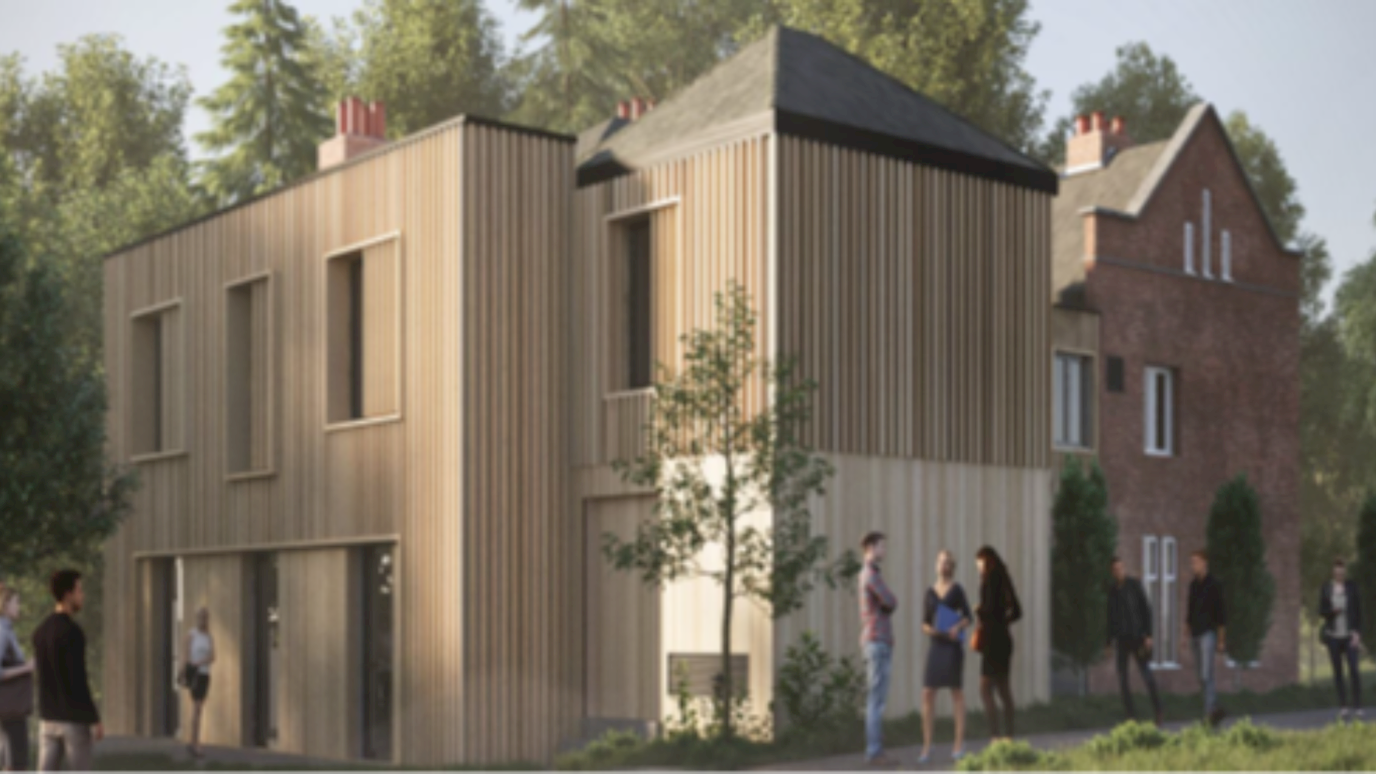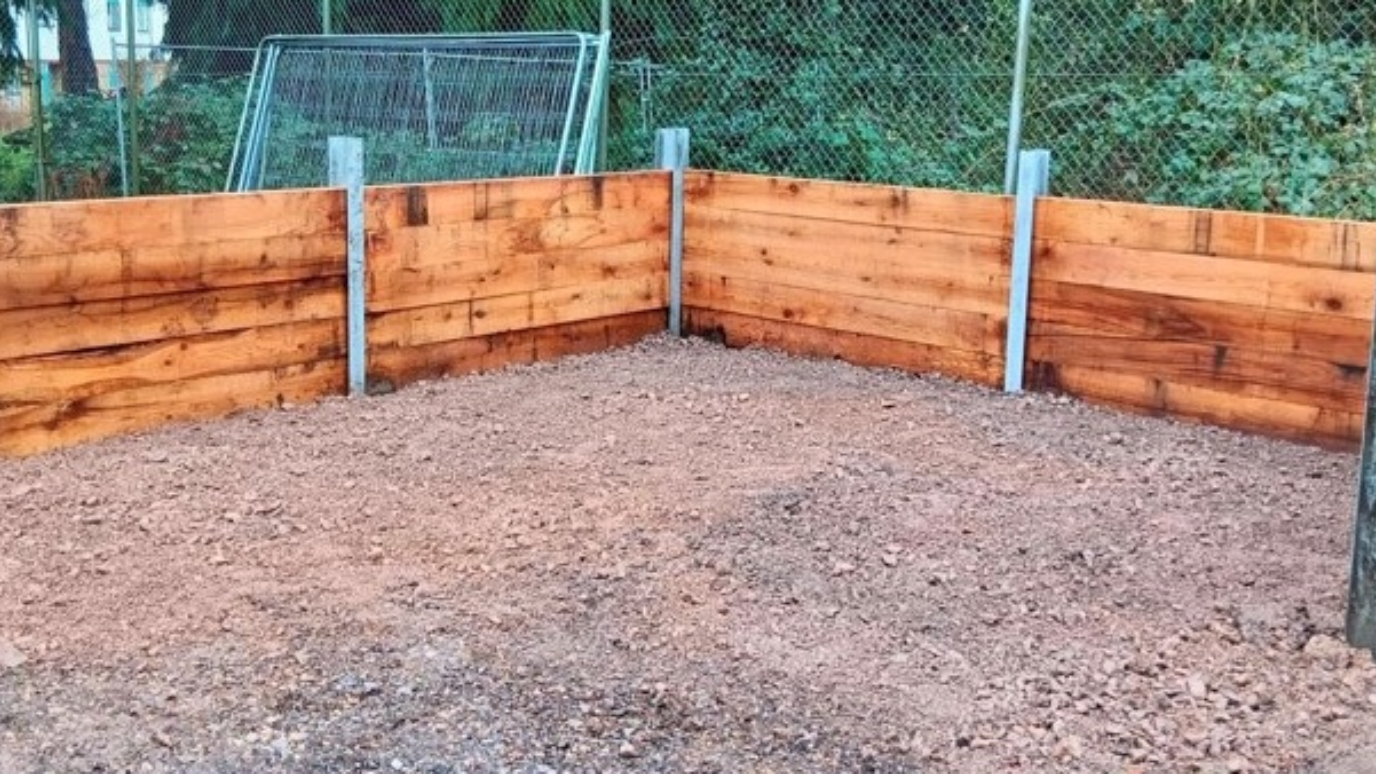Our Operations teams, including Estates, IT Services, Procurement, and Commercial Services, manage and reduce our energy, emissions, water consumption and waste production.
Our Estates Department also looks after our 135-acre parkland estate, which includes a variety of habitats and streams and a rich plethora of flora and fauna species - check out our Living Studio for more information.
We’re embedding sustainability into everything we do, from designing new buildings to purchasing appliances, selecting cleaning contractors, and sourcing kitchen ingredients. Notable initiatives already in place include:
- 100% zero-carbon electricity supply
- Zero-waste-to-landfill
- 4x solar panel (PV cell) arrays
- Rolling LED light installation programme
- Majority electrically powered fleet
- On-site electric vehicle charging points and bike storage facilities
- Regular campus bus service linking offsite accommodation and train station
- Chemical free cleaning
- 3-star Sustainable Restaurant Award
- Reduced meat menus with emphasis on plant-based meals
- Fossil fuel divestment from our endowment investment portfolio
- Charitable donation of old IT equipment, clothes and other goods

Further information
Decarbonising our estate
Our greatest challenge will be decarbonising our Estate in line with our 2035 and 2040 net zero commitments.
Whilst we’ve been continuously improving the energy efficiency of our buildings, switching to sensor-operated LED lights, and prioritising sustainability in construction projects like Chestnuts, we still need to replace remaining gas boilers with heat pumps and single-glazed windows with double and triple glazing. This long-term programme, estimated at £50-100m over 10-20 years, includes our heritage Grade-1 listed Founder’s Building, which is subject to much stricter planning laws and regulations and will require lots of existing innovation to succeed.
To shape our 10–20-year investment plan and to aid transparency, we’ve established an Environmental Footprint Database of all our energy consumption, emissions, waste production and water use. From 2023/24 we'll begin annually publishing this information alongside our Financial Statements.
Commerical services
We understand that catering operations can have a significant impact on the environment and we therefore strive to ensure that every aspect of our operations complies with environmental regulations. Our membership of TUCO (The University Caterers Organisation) ensures that our suppliers are regulated and that environmental issues are embedded into tendering specifications.
- We were awarded 3* in the Sustainable Restaurant Association's Food Made Good Standard.
- We only serve sustainable fish certified by the Marine Stewardship Council.
- Our menus actively promote vegan and vegetarian choices.
- Our ingredients are sourced locally and seasonally to reduce carbon emissions.
- We have removed all single use plastic water bottles from our catering outlets and all disposable cups, takeaway boxes, cutlery and straws are manufactured in the UK and are recyclable or bio-degradable.
- Our tea and coffee is Fairtrade and we are committed to gaining a University and College Fairtrade Award by spring 2025.
We also have a dedicated sustainable hospitality webpage for conferencing and functions.
In our residences, we provide and encourage the use of recycling facilities and we ensure that our students are educated in good recycling practices as part of the mandatory pre-arrival induction process.
- We use chemical free products in the cleaning of our accommodation.
- We re-use bed linen and towels where possible and we only provide sustainable bathroom toiletries.
- We are committed to hosting greener meetings at our venue and have achieved a silver Green Meetings award, the Green Tourism standard created specifically to assess the sustainable practices of meeting and event venues.
Procurement
As a member of the London Universities Purchasing Consortium, Royal Holloway prioritises responsible procurement.
Our suppliers must adhere to our Supply Code of Conduct, which covers:
- Social compliance, prohibiting forced or underage labour, ensuring suitable working conditions and fair treatment of workers.
- Ethical compliance and economic development, including acting with integrity, complying with laws and regulations, and supporting of fair trade.
- Environmental compliance, including avoiding environmental harm and taking actions to reduce environmental impact.
As a leader in this field, we’re also an affiliate of Electronics Watch, an independent monitoring organisation collaborating with public sector organisations to promote and enable responsible procurement and safeguard workers’ rights in electronic supply chains.
On-site renewable energy generation
In addition to our zero-carbon electricity supply and ongoing energy-saving efforts, we operate four rooftop solar arrays. Our two largest systems are installed on the newest editions to our estate – the Shilling and Emily Wilding Davidson buildings.
With a combined maximum capacity of over 100kWh, these systems power their respective buildings, and export excess generation to the National Grid.
On-site renewable energy generation will continue to be integral to our decarbonisation strategy, and we’re currently exploring funding and considering locations for additional systems across the campus.
| Building | Shilling | Emily Wilding Davidson | Caryl Churchill | Moore |
| No. of Solar Modules | 152 | 150 | 40 | 27 |
| Capacity (kW) | 41.8 | 45 | 12 | 6.6 |
| Inverter | Solis 40kW | 2x ZeverSolar 17K | Fronius IG Plus | 3x Sunnyboy 2000HF |
| Annual Estimated Generation (kWh) | 37,994 | 40,050 | 10,000 | 8,000 |
Electric vehicles (EVs)
Most of our campus fleet runs on electric power, charged with zero-carbon energy on-site. This includes 13 electric buggies used by our maintenance teams, our gardening team’s electric vehicle, and our clean-air postal van.
In addition to cutting our scope 1 carbon emissions, our electric vehicles (EVs) help keep air pollution low around campus, saving fuel costs, and minimising noise pollution near offices, lecture theatres and halls of residence.
Mike Berry, Director of Estates, said: “Reducing our fleet and transitioning what remains to EVs is a vital part of our sustainability strategy and way of reducing our overall environmental footprint.”
“It’s also making more and more sense operationally and, after some initial reluctance, you can see that the teams are now genuinely enjoying and proud to be using the buggies and vans and doing their bit."
“They’re a great symbol to our students and visitors that we’re taking our role seriously.”
We still have more work to do, aiming to phase out or replace the few remaining fuel vehicles, decrease the overall fleet size, and advance our wider Green Travel Plan and initiatives.
IT Services
Environmental sustainability is a consideration for IT Services in all of our operations, and we currently have a large focus on energy saving.
IT procurement
This is reflected in the way we procure technologies for the University and work with external suppliers. Our conversations with suppliers always presses for a stance on environmental sustainability, ensuring we know how they can meet our requirements and help us deliver a more sustainable service. Some examples of this include:
- In January 2024, IT Services successfully completed a multi-year project to migrate the University’s virtual server to a new hardware. This work has resulted in a significant reduction in our data centre footprint and power usage, which will lead to a predicted energy saving of around 54%. The project triggered a review of our other suppliers, looking particularly at their sustainability credentials.
- Our Network Programme: currently underway, this is a multi-year, multi-project programme to update our campus network – through which we are conducting supplier comparisons and benchmarking to make sure we get the best fit to support our work, including from a sustainability perspective.
- Bringing in more sustainable products for storing our data as a University
On campus
As well as through procurement, we are slowly growing a number of initiatives to help bolster our sustainability efforts. For example:
- We are currently in discussions around raising the temperature in our data centre; something which will reduce the amount of energy put into cooling our equipment.
- In our student labs we use Ecosia, an environmental search engine. Ecosia dedicates all of its profits to planting more trees.
Careers Service
The Careers Service is committed to sustainability and in the last two years, many colleagues have undertaken Carbon Literacy training to empower them to have meaningful conversations with students, colleagues and external partners.
In recognition of our students’ interest in sustainability-related careers, as well as the significant increase in sustainability-related roles in the Graduate Labour Market in recent years, we have added a Sustainability Careers Week to our annual careers events programme.
Our Careers Portal is used by students and graduates to search for jobs, placements and part-time work, and all employers who register on the site are asked whether they recognise the climate crisis, and agree with the science, as well as confirming that they are working towards achieving Net-Zero by 2050 or earlier. This enables students and graduates to search exclusively for opportunities that are offered by these employers if they wish to.
Since the pandemic, we have also significantly reduced the number of posters and flyers that we produce and aim to source sustainable merchandise wherever possible, which is received positively by our students. Similarly, we send instructions to all employers attending our careers events to consider reducing the merchandise that they offer to students and choosing edible products or those that are made from recyclable materials only. Many of them are members of the Sustainable Recruiters Alliance and already working towards these practices.























